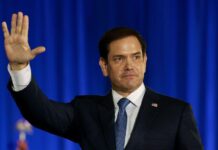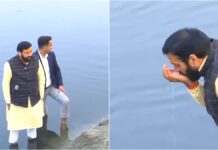NEW DELHI: The Supreme Court on Wednesday asked the Centre why it cannot call an all-party meeting to determine issues relating to the promise of freebies during election campaigns.
Chief Justice of India NV Ramana’s remark came after Solicitor General of India Tushar Mehta, appearing for the Centre, said that there are parties, who may not be in power, were rolling out promises to influence the voters unduly.
“For example, someone says, for all of you I will not charge electricity. People can be lured. I don’t even know from where the money will come. Electricity is one example. Would the voter have an atmosphere where he can take informed decision. Can you promise the moon to get elected?” SG said.
To this, the CJI asked the Solicitor General, “Why doesn’t the government of India call for an all-party meeting?”
The Solicitor General replied that political parties have already moved the court and opposed any intervention on freebies, hence, an all-party meeting may not be productive. He added, “There are some political parties who think it is their fundamental right to offer freebies and have come to power by only offering freebies.”
Mehta further told the bench that a Constitutional body should head the committee to deliberate the issue.
“Why doesn’t the Government of India form a committee to study this issue?” asked CJI from Mehta.
Solicitor General said that the Central government is assisting the court in every way and that the committee can submit a report on the issue in two-three months.
Yesterday, the apex court while acknowledging the complex nature of the issue, had said that the intention of the court was to initiate a wider public debate on the issue, and it is for that purpose the constitution of an expert body was mooted.
While hearing the case today, the CJI on the issue of who will head the committee, said, “That Biggest problem is, who will head the committee? Ultimately it is the political parties which make promises and contest elections, not individuals. Suppose if I contest I won’t even get 10 votes because individuals do not have much importance. That is how our democracy is.”
Senior advocate Vikas Singh, appearing for the petitioner, told the bench that a committee to look into the issue of freebies should be headed by a retired Supreme Court judge.
To this, the Chief Justice said that a person who retires or is going to retire from his professional life has no value in India. “I was suggesting a retired Supreme Court judge to head the committee like Justice (RM) Lodha,” Singh said.
CJI Ramana replied, “The person who retires or is going to retire has no value in this country.” CJI Ramana is retiring on August 26.
During the previous hearing, the apex court said that the issue concerning freebies is complex and there is a need to draw a distinction between welfare schemes and other promises that are made by political parties before elections.
The top court was hearing a batch of pleas seeking direction to seize election symbols and deregister political parties that promised to distribute irrational freebies from public funds.
The apex court had earlier said that there is a need for a commission consisting of Niti Aayog, Finance Commission, ruling and opposition parties, Reserve Bank of India, and other stakeholders to make suggestions on how to control freebies by political parties.
Senior advocate Kapil Sibal, assisting the apex court on the issue, had said that a “non-political body” like Finance Commission may look into the issue and make recommendations.
On the last date of the hearing, the apex court said that it cannot prevent political parties from making promises during the election campaigns but the question is what constitutes right promises and what is the right way of spending public money.
Political parties like Aam Aadmi Party, Congress and Dravida Munnetra Kazhagam (DMK) have sought to intervene in the matter and opposed the plea.
AAP had filed an application stating that electoral promises such as free water, free electricity, and free transport are not ‘freebies’ but these schemes are absolutely essential in an unequal society.
Earlier, the Supreme Court had said that promising and distributing freebies by political parties during elections is a “serious issue” and an amount has to be spent on infrastructure etc. It had said that the economy losing money and the welfare of people, both have to be balanced.
The Election Commission had pointed out that it was the Supreme Court in its 2013 judgment which had held that promises made by political parties and candidates in their manifestos could neither be construed as a corrupt practice under the Representation of the People Act nor the violation of level playing field (Article 14).
One of the pleas filed by advocate Ashwini Upadhyay claimed that political parties arbitrarily promise or irrational freebies for wrongful gain and to lure voters in their favour is analogous to bribery and undue influences.
It claimed that promise or distribution of irrational freebies from public funds before elections could unduly influence the voters, shake the roots of a free and fair election, and disturb the level playing field, besides violating the purity of the election process. (ANI)
Also Read: Political parties oppose restriction in announcing freebies






